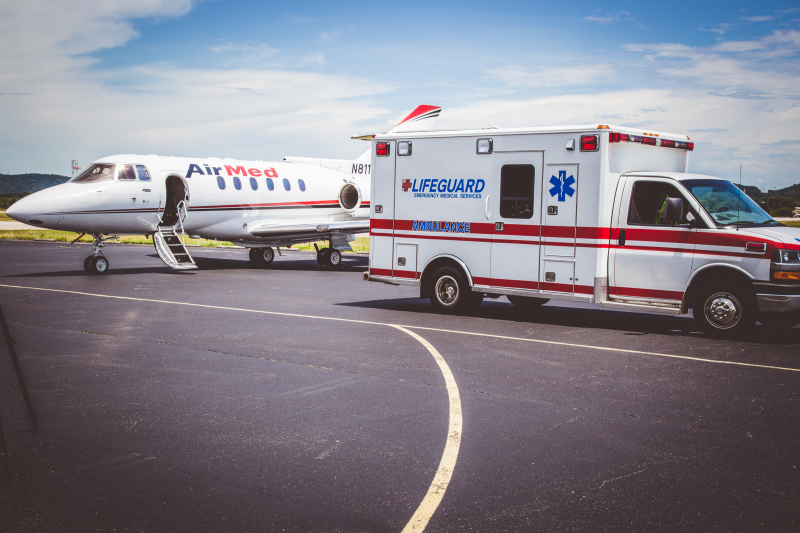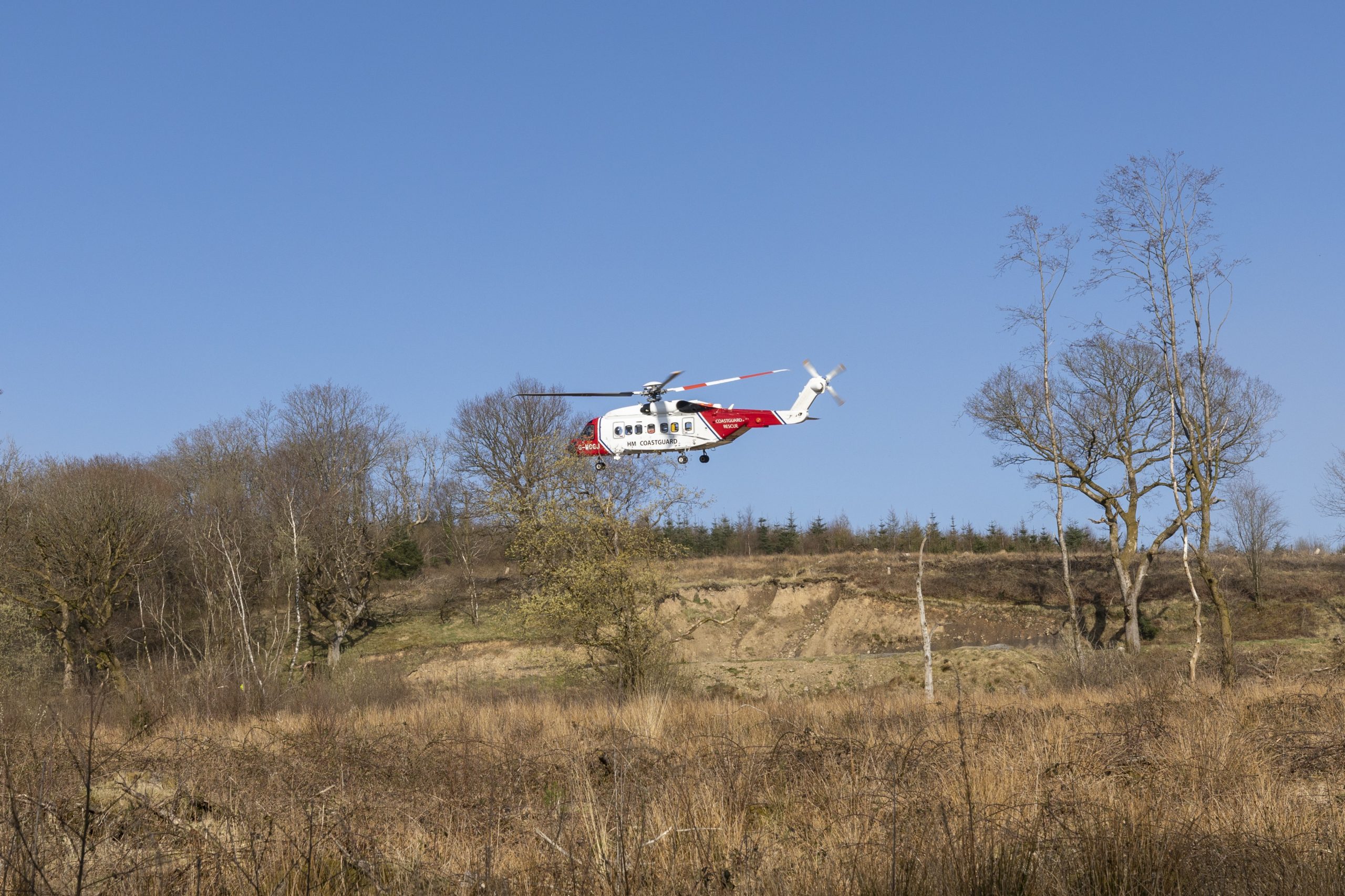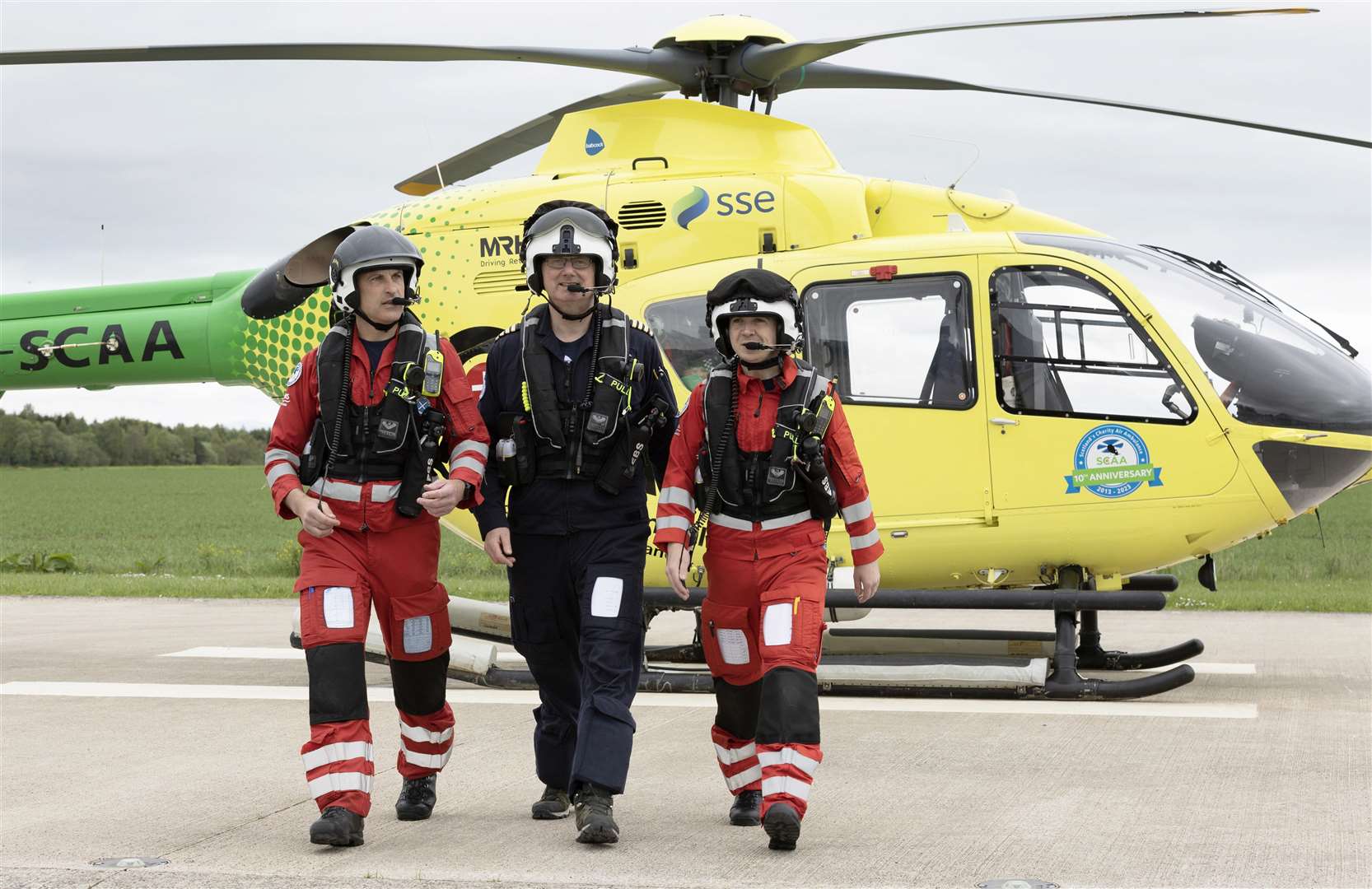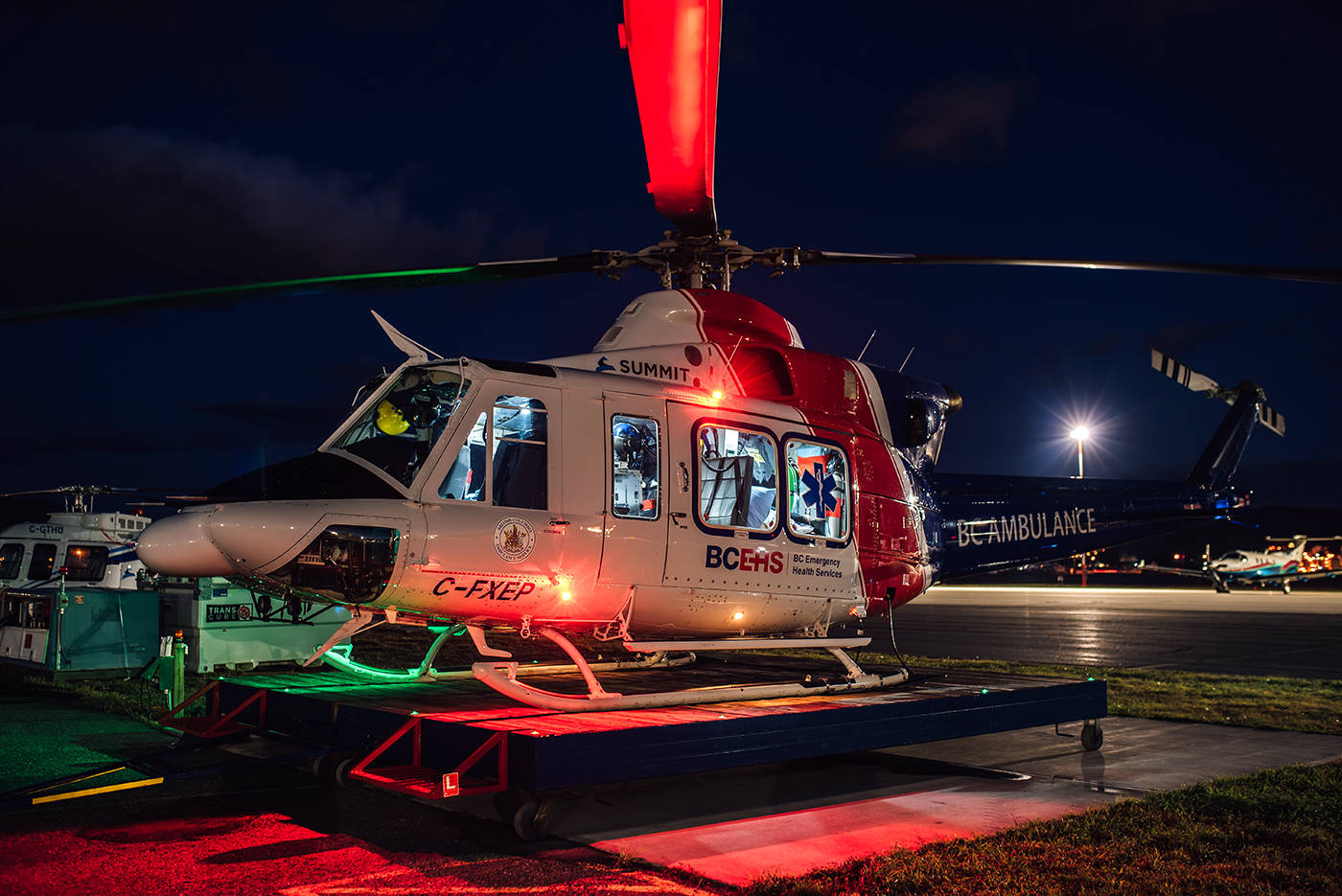Air ambulance operations involve more than just the medical personnel who care for patients during the flight. One crucial component that often goes unnoticed is the ground support crews. These unsung heroes play a vital role in ensuring the seamless coordination and safe execution of air ambulance missions. From preparing the aircraft to guiding it to the designated landing spot, ground support crews work behind the scenes to ensure everything runs smoothly. In this article, we will explore the essential duties and responsibilities of these dedicated individuals who assist in air ambulance operations. So, let’s dive right in and discover the significant contributions of ground support crews in the world of air ambulance services.
The Importance of Ground Support Crews in Air Ambulance Operations
Air ambulance operations play a vital role in swiftly and safely transporting patients in critical condition to medical facilities. While the spotlight often shines on the flight crew that takes to the skies, it is essential not to overlook the crucial role played by ground support crews. These unsung heroes work tirelessly behind the scenes to ensure the smooth operations of air ambulance services. From coordinating with flight crews to managing ground emergencies, providing medical equipment and supplies, and maintaining compliance with regulatory standards, the ground support teams are the backbone of air ambulance operations.

Ensuring Smooth Operations
One of the primary responsibilities of ground support crews is to organize and manage the logistics of air ambulance operations. They meticulously plan and monitor flight schedules, coordinate with airport authorities, and ensure the fueling and refueling of aircraft. Additionally, ground support crews are responsible for managing hangar operations, ensuring that the aircraft are properly maintained and ready for each mission. By efficiently managing these operational aspects, ground support crews contribute to the overall smoothness and efficiency of air ambulance operations.
Coordinating with Flight Crew
The collaboration and coordination between ground support crews and flight crews are paramount in air ambulance operations. Ground support teams work closely with flight crews to develop comprehensive flight plans, taking into account weather conditions and any potential risks that may arise during the journey. They provide real-time weather updates to the flight crews, enabling them to make informed decisions. Ground support crews also assist flight crew briefings and provide assistance with navigation to ensure a safe and efficient journey.

Assisting in Pre-Flight Preparations
Before each flight, ground support crews play a crucial role in the pre-flight preparations. They are responsible for preparing and loading the necessary flight and medical equipment, securing medical gear properly, and performing safety checks on the aircraft. Ground support crews also prepare patient transport equipment, ensuring that it is in optimal condition for a smooth and comfortable journey. Additionally, they take responsibility for ensuring an ample supply of medical equipment and medications, ensuring that no essential items are left behind.
Managing Ground Emergencies
Air ambulance operations can face unpredictable challenges on the ground, and in these situations, ground support crews prove invaluable. They are proficient in executing emergency response plans, coordinating ambulance services, and securing appropriate ground transportation. When necessary, they facilitate road closures to ensure a smooth passage for the air ambulance team. Additionally, ground support crews actively contribute to public safety by assisting with tasks such as crowd control or traffic management during critical ground emergencies.

Conducting Vehicle Maintenance
Ground support crews take on the responsibility of maintaining the air ambulances and ground vehicles used in these operations. They perform routine inspections and repairs, staying vigilant to ensure that all vehicles are in optimal condition. Ground support crews monitor vehicle conditions regularly and maintain inventories of spare parts to quickly address any mechanical issues that may arise. They also ensure that all vehicles are kept clean and sanitized to meet the highest standards of hygiene. When necessary, ground support crews collaborate with maintenance providers to ensure the fleet’s proper upkeep.
Providing Medical Equipment and Supplies
To ensure the best possible care for patients during transportation, ground support crews are responsible for stocking the air ambulances with the necessary medical equipment and supplies. They are meticulous in ensuring the sterilization of equipment, maintaining comprehensive inventories of medical supplies, and coordinating with medical suppliers to replenish stock as needed. Furthermore, ground support crews implement quality control measures to ensure that all equipment and supplies meet stringent safety standards.
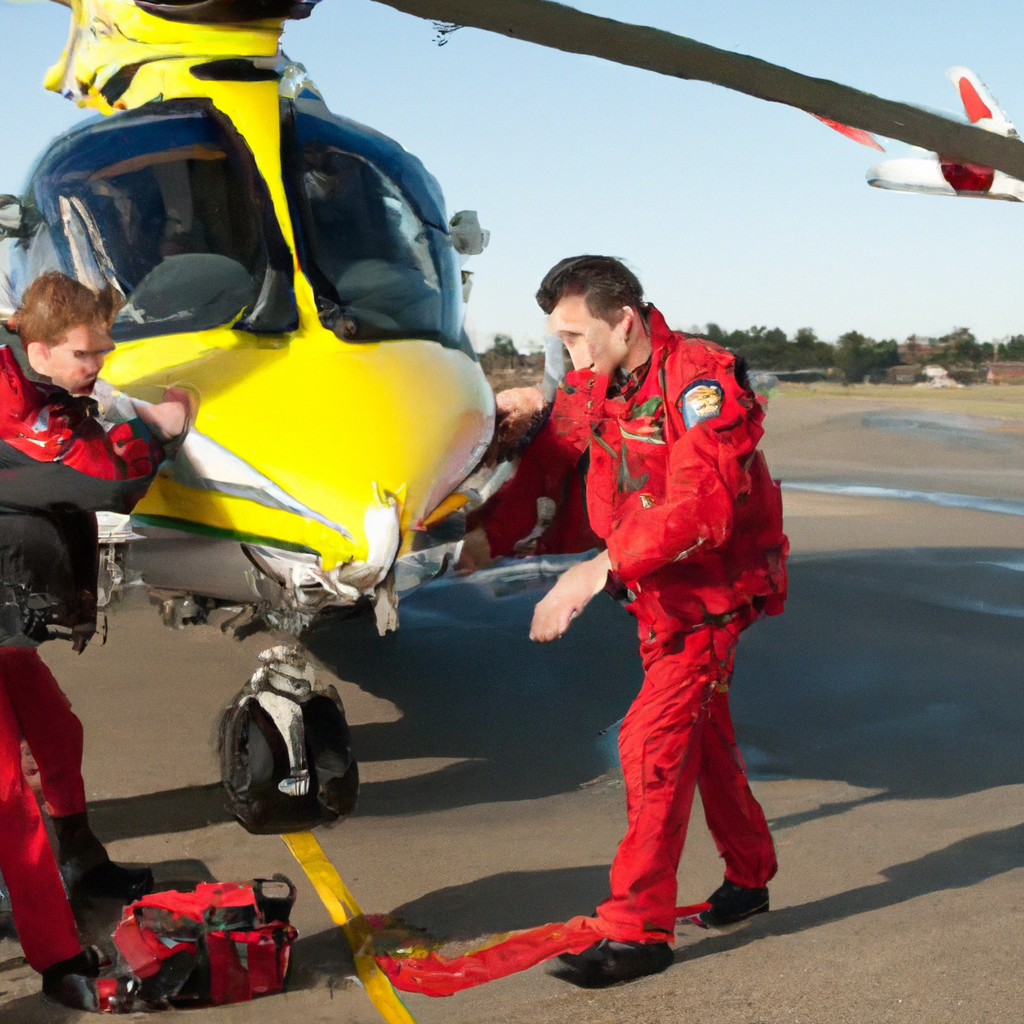
Ensuring Compliance with Regulatory Standards
Ground support crews must stay up to date with the ever-evolving regulations governing air ambulance operations. They conduct regular safety audits, implement quality assurance programs, and ensure compliance with regulatory standards. Ground support crews document and report compliance on various aspects, including equipment maintenance, training, and certification. By upholding these regulatory standards, they contribute to the overall safety and reliability of air ambulance operations.
Coordinating with Hospital Staff
The coordination between ground support crews and hospital staff is vital in ensuring seamless patient transfers. Ground support crews frequently provide medical updates to hospital personnel, collaborating on the logistics and timing of patient transfers. They share critical patient information, ensuring that the receiving facility is adequately prepared to receive the patient. Ground support crews coordinate with medical personnel to ensure a smooth handover, allowing for uninterrupted continuity of care during the transfer process.
Facilitating Patient Transfers
Ground support crews take an active role in facilitating patient transfers between medical facilities. They work closely with flight crews to ensure that patients are safely transported from the ambulance to the aircraft and vice versa. Ground support crews assist in securely transferring patients onto stretchers or specialized transport equipment, ensuring their comfort and safety throughout the process. Their expertise and efficiency enable seamless transitions between ground and air transportation, minimizing any potential disruptions to patient care.
Maintaining Communication and Documentation
Effective communication and meticulous documentation are essential in air ambulance operations, and ground support crews excel in these aspects. They coordinate with air traffic control, providing critical updates and adhering to established communication protocols. Ground support crews maintain constant contact with flight crews, ensuring that all relevant information is shared promptly and accurately. Additionally, they are responsible for documenting critical information, managing reports and logs, and maintaining strict confidentiality and privacy standards to safeguard patient data and sensitive information.
In conclusion, the vital role of ground support crews in air ambulance operations cannot be overstated. Their tireless efforts in ensuring smooth operations, coordinating with flight crews, assisting in pre-flight preparations, managing ground emergencies, conducting vehicle maintenance, providing medical equipment and supplies, ensuring compliance with regulatory standards, coordinating with hospital staff, and maintaining communication and documentation are essential to the success and safety of air ambulance operations. Without the expertise, dedication, and coordination of ground support crews, the prompt and efficient transportation of critically ill or injured patients would not be possible.
